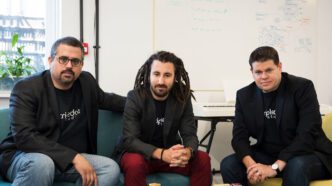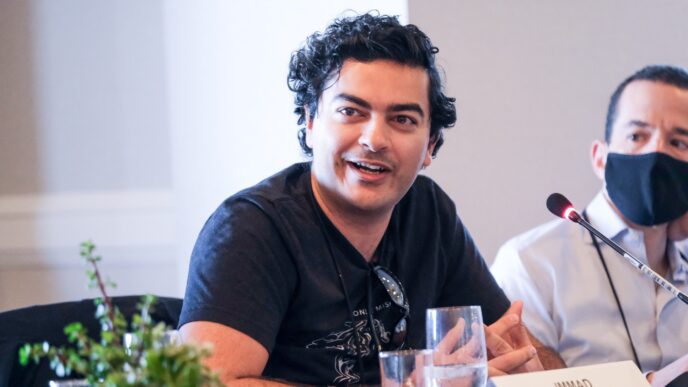London-based Tripledot Studios has just made a significant move in the mobile gaming industry by acquiring AppLovin’s gaming portfolio for $800 million. This hybrid transaction involves a $400 million cash payment, which includes $150 million upfront and a $250 million promissory note, alongside a 20% minority stake in Tripledot. With this deal, Tripledot’s valuation soars to $2 billion, a remarkable feat for a company founded in 2017.
Tripledot’s Meteoric Rise in Mobile Gaming
Founded by Lior Shiff, Akin Babayigit, and Eyal Chameides, Tripledot Studios has quickly established itself as one of the fastest-growing companies in Europe. The company achieved profitability within its second year and was named Europe’s fastest-growing company by the Financial Times in 2023. Tripledot’s success is largely attributed to its data-driven approach to casual and puzzle games, utilizing machine learning to optimize player engagement and retention.
This acquisition is a bold step for Tripledot, adding ten new studios and 2,500 employees to its roster. With this expansion, Tripledot now ranks among the top five independent mobile game studios worldwide by revenue. The addition of diverse game types—from hyper-casual to mid-core strategy and social simulation—positions Tripledot as a formidable player in the mobile gaming market. Furthermore, the portfolio’s stability is noteworthy, as no single game contributes more than 10% of its total revenue.
While Tripledot has predominantly focused on mobile gaming, this acquisition signals its interest in expanding to other platforms. The company’s portfolio now includes popular titles such as Mobile Strike and Project Makeover, and it is exploring cross-platform opportunities, including PC gaming. The global PC gaming market is valued at $6.6 billion and continues to grow, providing a promising avenue for Tripledot’s future.
AppLovin’s Strategic Shift
For AppLovin, this sale represents a strategic pivot. Although the company’s gaming division has faced challenges, its advertising technology business is flourishing, with Q1 2025 revenues hitting $1.16 billion, a 71% increase year-over-year. AppLovin initially acquired gaming studios to develop AI models for its advertising platform but, as CEO Adam Foroughi notes, “We’ve never been a game developer at heart.” The decision to sell the gaming division follows AppLovin’s failed bid for TikTok’s non-China assets, allowing the company to refocus on monetizing social media through AI-powered advertising.
Integration Challenges and Industry Consolidation
Integrating 2,500 employees across 17 cities is no small task. Tripledot will need to align its London-based, data-driven culture with the diverse teams it acquires, including those from Silicon Valley-based companies like Machine Zone and Magic Tavern. Retaining top talent will be crucial, especially as competitors like Miniclip and Playtika ramp up their recruitment efforts. However, Tripledot’s experience managing global teams in locations like Warsaw, Barcelona, and Jakarta gives it an edge in overcoming these challenges.
The newly acquired studios bring a wealth of successful titles, such as Hexa Sort and Wordle! from Lion Studios, Wordscapes by PeopleFun, Mobile Strike and Game of War from Machine Zone, and Project Makeover from Magic Tavern. This acquisition comes amid a wave of industry consolidation, with Q1 2025 seeing a record $6.6 billion in gaming mergers and acquisitions, including Scopely’s $3.5 billion deal for Niantic’s games division.
For Tripledot, this deal offers scale that will help with cross-promotion and more efficient user acquisition, especially during a time of declining global mobile downloads and rising advertising costs. The deal also underscores Europe’s growing strength in the mobile gaming sector.
With this acquisition, Tripledot now joins the ranks of giants like Rovio and Supercell. Backed by EU digital single-market policies that simplify cross-border operations, it is positioned to compete with Asian heavyweights like Tencent and NetEase.













